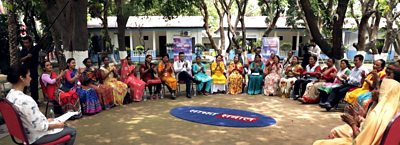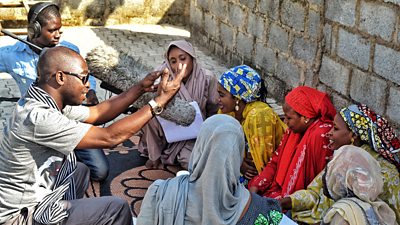Our work contributes to meeting the UN SDG commitment to “leave no one behind”, by meaningfully including people who are most often marginalised or excluded.
Media representation shapes the way that people see their own and each other’s lives, and influences attitudes, societal norms and actions towards others. We use non-stereotypical portrayals to highlight the needs, experiences and skills of people whose lives and voices have been overlooked, positively influencing the way that audiences see and accept different groups. We make space for people to tell their own stories, including when talking about our work.
Media can influence power dynamics by framing and enabling public discussion. The choices and decisions made by those who initiate or organise public discussions can shape who has a voice, and which issues are considered important by society. Our work sparks national and even global conversations that previously may have been uncomfortable.
A key focus of our work is to bring about transformative change for women and girls, who experience widespread social disadvantages and discrimination in most of the countries where we work. This is compounded for women and girls from minority ethnic groups, lower social classes, those who are particularly young or old, or living with a disability.
All of our projects strive to ensure that diverse women and girls are seen and heard through balanced and meaningful representation in media content, within media organisations and in social discourse. Our work also addresses those areas of society where vulnerable people have often been excluded – including health services, education and decent work.
Our areas of focus
-
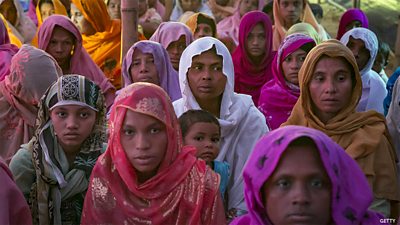
Leaving no one behind
All of our projects strive to give women and girls equal voice and balanced, meaningful media representation, on and off camera. We address the needs and voices of people living with disabilities and our multimedia platforms help young people engage with, and speak about, the issues they face. -
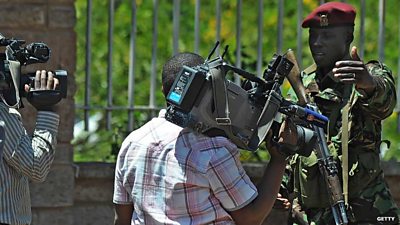
Bridging divides
We use mass media, digital and community outreach to help prevent and resolve conflict and build more peaceful societies. Our work provides trusted information, convenes inclusive discussion, helps dispel mis/disinformation, and uses stories and ideas to bridge divides, build tolerance
Innovative health communication
More on our health work-
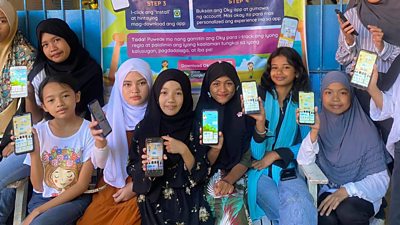
Sharing period power through an app
Philippines, Indonesia, and Papua New Guinea -
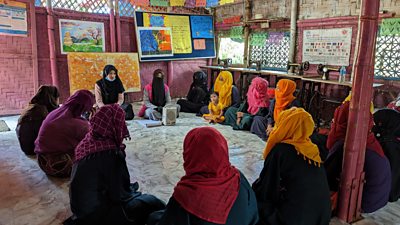
Using radio drama to tackle mental health in the Rohingya camps
Cox's Bazar, Bangladesh -

Enabling health workers to better meet the needs of hard-to-reach communities
Bangladesh, India, Ethiopia, Nepal
How we work
This area of work often uses the methodologies developed by the ���˿���’s 50:50 project to help content-makers better reflect the audiences they serve. We also addresses discrimination and harmful social norms affecting people in LGBTQI+ communities, and strives for diverse and meaningful representation of these groups.
We help people make informed decisions to improve and protect their health and that of their family and community. Our projects and programmes support health workers in poor and remote communities, help to build more effective health systems and hold leaders to account on health.
By supporting diverse creative teams to work in an inclusive way we are bringing together different perspectives and lived experiences to create appealing and engaging media content. As a result, previously excluded people are routinely and meaningfully included, heard and better able to participate equally in decision-making at all levels of our organisation, the media and society.
Where we work
-
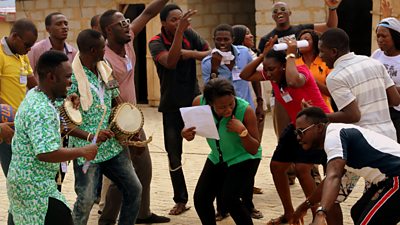
In Africa
Delve into our projects in Africa which range from media training to radio and TV programmes to tackle key development issues. Learn more here. -
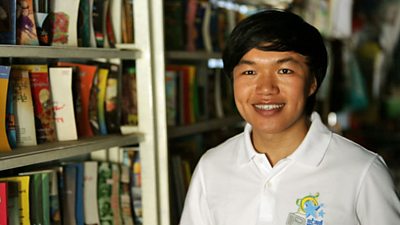
In Asia-Pacific
Explore the breadth of our projects in Asia which achieve impact through innovative mobile phone services, TV debate shows and traditional street theatre. -
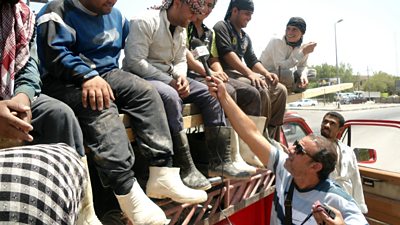
In Middle East & North Africa
Learn more about our longstanding media training projects and programmes that strengthen media development and provide a forum for trusted dialogue. -
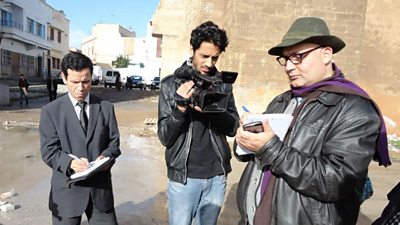
In Europe & Caucasus
Our projects increase trusted, inclusive and independent media programming to help people make sense of events in their countries and engage in dialogue – ultimately bringing societies together.
